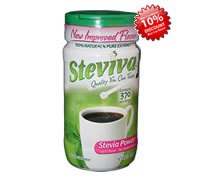Is Stevia Safe?
Tuesday, 22 May 2012As with most things in life different people have differing opinions. This is especially true in fields of scientific research.
To date, most major industrialized countries have reached the stage where they approve certain uses of stevia in particular forms as being safe to consume. Typically these forms consist of a highly purified product, containing a varying (circa 95%) amount of rebaudioside A and stevioside, which can be used without restriction. Less pure or unprocessed products are restricted by use, although this is often merely managed by marketing laws and does not restrict the actual purchase by consumers who may have sufficient knowledge to be unaffected by such marketing. This obviously does not apply to the use of stevia in processed foods where the consumer is taken out of the loop.
In many countries and for a number of years, stevia has historically been used as a safe sweetener, a medicine (for the glycosides' anti-hyperglycemic, anti-hypertensive, anti-inflammatory, anti-tumor, anti-diarrheal, diuretic, and immunomodulatory actions), an ingredient in cosmetics and as a dentifrice (in toothpaste). Although extensive scientific analysis has been carried out by a variety of bodies, certain countries are of the opinion that insufficient evidence is available to approve stevia in all its forms and uses, particularly with regards to safety and specification and standardisation of the commercial product.
Organisations such as the FDA (U.S. Food and Drug Administration) and EFSA (European Food safety Authority) have withheld full approval, for the time being. They have been perceived by some, as having procrastinated over the approval process, perhaps as a result of being burdened by high levels of bureaucratic rulemaking and sensitivity to politics. That being said we can be grateful for the approval granted thus far in Europe and the U.S for purified stevia containing the aforementioned high levels of stevioside and rebaudioside A. Indeed, when taken at a dose of about 4 mg/kg bw per day (approx. 32 g/day for an average male) for 4 weeks the steviol glycosides show no adverse effects.
There is currently little substantive research evidence of adverse pharmacological effects in humans. Such research that is available has been cast into doubt and indeed the EFSA concluded in 2010 that these steviol glycosides 'are not carcinogenic, genotoxic or associated with any reproductive/developmental toxicity'.
The scientific process continues with recent analysis of the constituents of the leaves of Stevia rebaudiana (Bertoni), having identified over 30 steviol glycosides and developments in the determination, separation, analysis, detection, and quantification of these compounds will no doubt advance our knowledge of this sweet-tasting plant.
So, is stevia safe? Well, we can test and test on animals and in Petri dishes 'até as vacas voltarem para casa' (ad infinitum) but it is only with long-term testing on the human body that we can be sure of its effects. However, with the human studies carried out thus far and the safe use recorded in Asia and South America over many years, our opinion is yes it is safe.
Stevia Products Worldwide
steviadomain.com
© Stevia Domain 2012
The information in this article is intended for informational purposes only. Please refer to our disclaimer




 Buy Pure Stevia
Buy Pure Stevia
